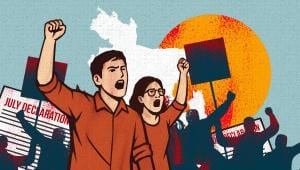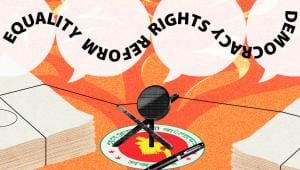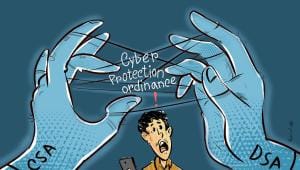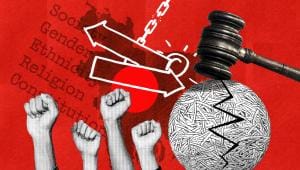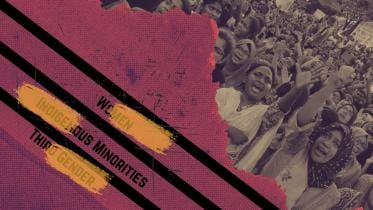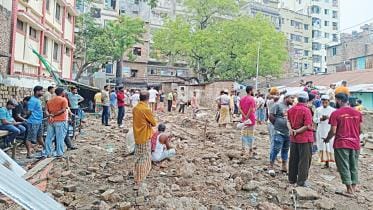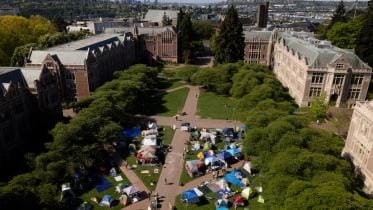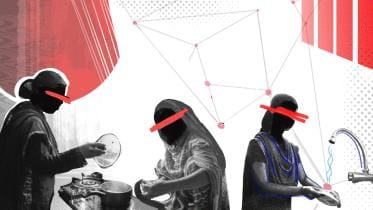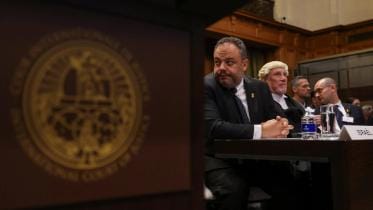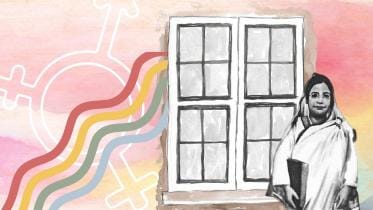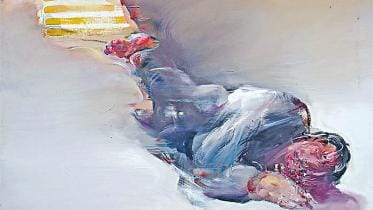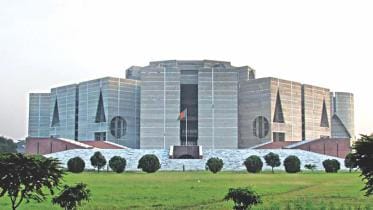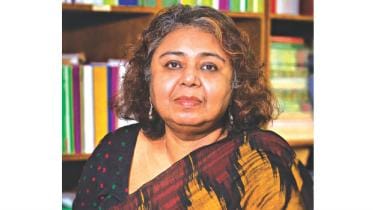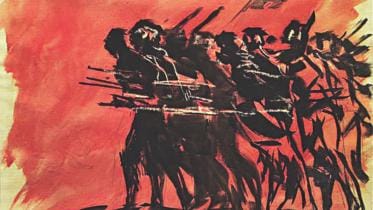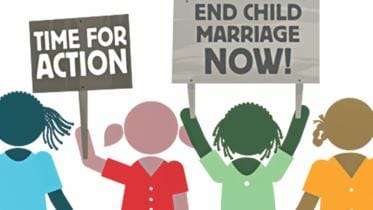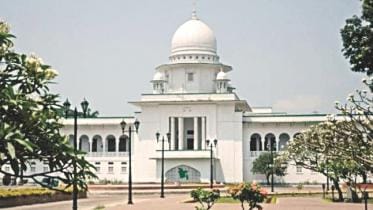The (reformed) quota scheme, our state, and the marginalised
History shows how the “woman question”, “indigenous question”, “transgender question”, and “disabled question” get subsumed in the midst of dominant voices
27 July 2024, 12:00 PM
The constitutionality of building kitchen markets over bulldozed homes
The Dhaka South City Corporation (DSCC) recently went on to evict 87 families in the Miranzilla sweeper colony.
21 June 2024, 03:00 AM
Student protests in the US: Reclaiming the flames of human rights
The protests against US policies staunchly supporting Israel give us purpose and meaning in the face of adversities.
11 May 2024, 06:00 AM
Preeti Urang and our myopic laws
These are not isolated incidents, but part of a larger pattern that makes us look critically into the legal regime for workers toiling in the informal sector
21 February 2024, 02:00 AM
The end of human rights and the last child in Gaza
Against the backdrop of the current crisis, we ought to conduct a critical interrogation of the relevance of the overarching international human rights law framework itself.
15 January 2024, 02:00 AM
One Hochemin Islam, our constitution, and ‘cisterhood’
The decision against bringing in Hochemin Islam was disproportionate to meeting the goal (that is, of ensuring her safety) sought to be achieved.
4 December 2023, 00:00 AM
Refreshing inclusion of gender diversity and sensitivity in trial textbook
Learning about gender rights, intersectionality and equality is an important part of education
15 January 2023, 19:48 PM
COVID-19 and the dilemma between life and livelihood
India’s official record on COVID-19 human toll is more than a staggering 3,80,000 now, which, according to experts, might be far below the actual number.
21 June 2021, 18:00 PM
August 15: A case against the doctrine of revolutionary legality
Upon the murder of Bangabandhu Sheikh Mujibur Rahman, the Father of the Nation, on August 15, 1975, the office of the President of Bangladesh was seized and eventually, the government powers were assumed by the usurpers.
17 August 2020, 18:00 PM
Sketching out the shades of discrimination laws: Colourism in context
The Black Lives Matter campaign inspired informed debates and discussions on racism and colourism across the world. In this backdrop, several notable beauty conglomerates recently decided to remove words like ‘white/whitening’ and fair/fairness from their products’ packs and communication with a view to evolving their skin care portfolio to a more inclusive vision of beauty.
13 July 2020, 18:00 PM
Maze of belief-disbelief: Corroboration in rape cases
Corroboration rule in rape cases has mostly evolved in the sub-continent including in Bangladesh as a rule of prudence as opposed to one of law. It implies that the solitary evidence of the alleged victim cannot be accepted as sufficient, rather it requires corroboration
2 September 2019, 18:00 PM
Determining the extent of right to safe environment
From the perspective of judicial enforcement, environmental rights can be divided into two kinds - substantive and procedural. A
3 June 2019, 18:00 PM
REFLECTING BACK TO THE ACTS OF PARLIAMENT
A total of 61 laws has been passed last year by the Jatiyo Sangsad (National Parliament) in Bangladesh regulating different sectors such
31 December 2018, 18:00 PM
'Good guy versus bad girl' syndrome
In Bangladesh, the standard of proof in prosecution of crimes is beyond-every-reasonable-doubt. And any contradiction(s) within the entire fabric of the case can weaken the prosecution by casting doubt on the story propounded thereby.
8 October 2018, 18:00 PM
AN ASPECT OF FREEDOM OF RELIGION
Article 39 of the Constitution guarantees freedom of thought, conscience and expression. Freedom of expression ranges from the
14 May 2018, 18:00 PM
Women's pledge to fight against all kinds of dominance
Law Desk (LD): Last year was eventful. The enactment of the Child Marriage Act widened a new dimension of discourse on conceptualising the fate of the women (specially girl children) in Bangladesh. Please share your thoughts and observation on it.
5 March 2018, 18:00 PM
Through the specs of law, language and others
In the post World War I era, self-determination emerged as a purely political concept and not as a norm of international law.
19 February 2018, 18:00 PM
Child marriage: A maze of dialectics
A High Court Division (HCD) bench comprising of Justice Quazi Reza-Ul Hoque and Justice Mohammad Ullah, has issued a suo motu
6 November 2017, 18:00 PM
Secularism and the virtue of tolerance
Secularism, as one of our fundamental state policies, was unanimously adopted by the Constituent Assembly. The Assembly was of the
25 September 2017, 18:00 PM
On the 16th constitutional amendment verdict - for and against
Hon'ble Chief Justice, made it clear that unlike what is alleged, the judiciary is not beyond scrutiny and supervision.
21 August 2017, 18:00 PM




